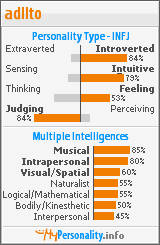 From 2001, Cello is a robotic sound installation, which combines autonomous behavior with interaction by Beatriz da Costa. The cello sort of tunes itself and then plays a set of simple phrases. Each phrase is repeated until somehow it is played correctly and moves on to the next. However if you get too close it will stop playing and act irritated.
From 2001, Cello is a robotic sound installation, which combines autonomous behavior with interaction by Beatriz da Costa. The cello sort of tunes itself and then plays a set of simple phrases. Each phrase is repeated until somehow it is played correctly and moves on to the next. However if you get too close it will stop playing and act irritated.
Strangely the poor thing is never programmed to reach satisfaction. The cello is an instrument which is demanding for the technology to play and the feedback loop which assesses the robot's ability to perform is perfectionist and never satisfied.
Strangely as I reflected over the different relationships I have with my scarred cello and my electric cello I can find fundamental differences. They are at core best expressed in the difference between I-Thou and I-it relationships. My organic acoustic cello has the quality of being more autonomous than an electric cello. I feel Buber's insight rings now true.
Every particular Thou is a glimpse through to the eternal Thou; by means of every particular Thou the primary word addresses the eternal Thou. Through this mediation of the Thou of all beings fulfilment and non-fulfilment, of relations comes to them: the inborn Thou is realised in each relation and consummated in none. It is consummated only in the direct relation with the Thou that by its nature cannot become It. [i.e. the eternal Thou]I feel that all relationships have the potential to reflect the I-eternal Thou. Now I have to consider music and the cello has that potential also. But we must be wary because there is strong tendency to confuse aesthetics i.e. beauty with spirituality. But Buber placed spirituality or transcendence in relationship and in particular with reference to the eternal Thou. In the robotic sound installation the cello has no relationship it lacks two-foldness as I-Thou and I-it - there is no player, there is no I and there is no ultimate Thou. However my electric and I have the potential for an I-Thou if consummated in the context of the eternal Thou.
By myself I can do nothing; I judge only as I hear, and my judgement is just, for I seek not to please myself but him who sent me. John 5:20









